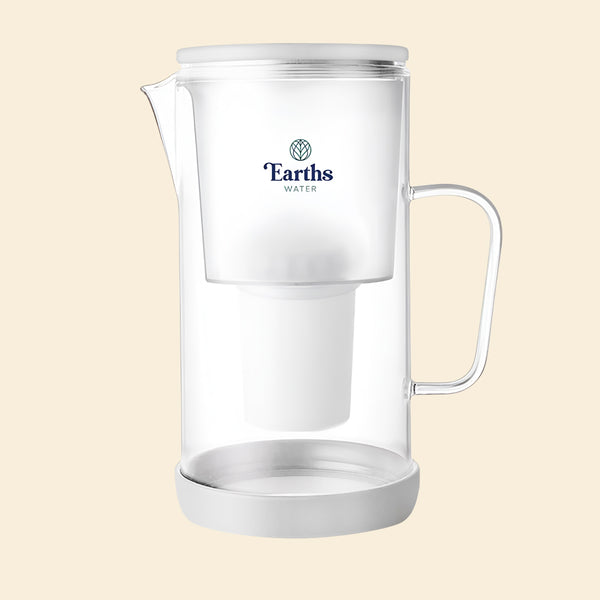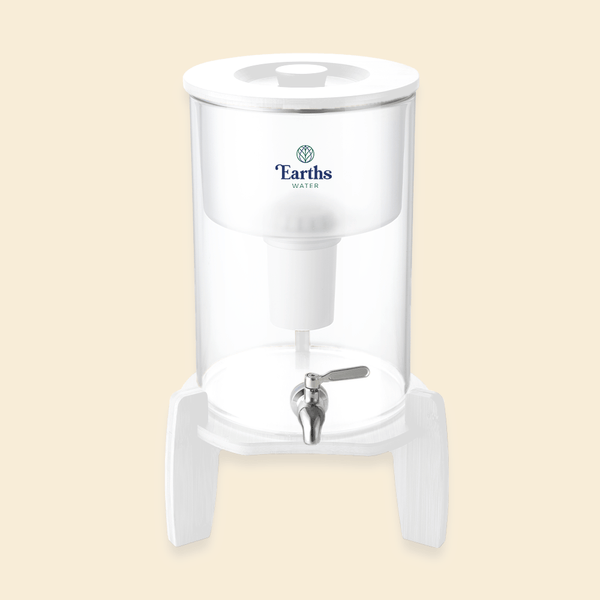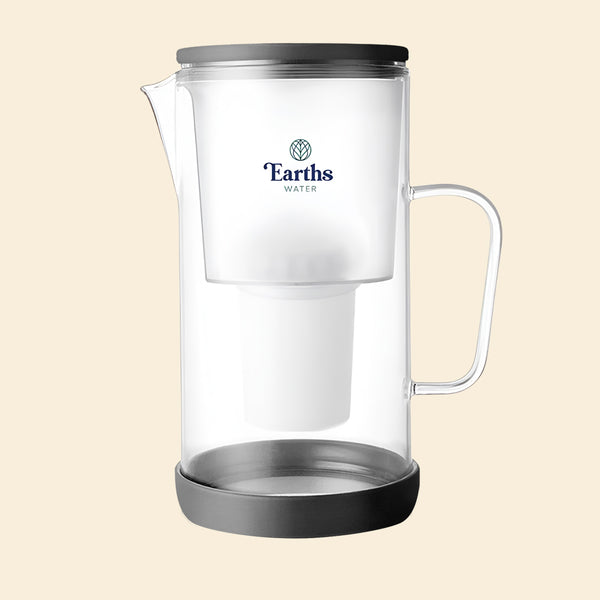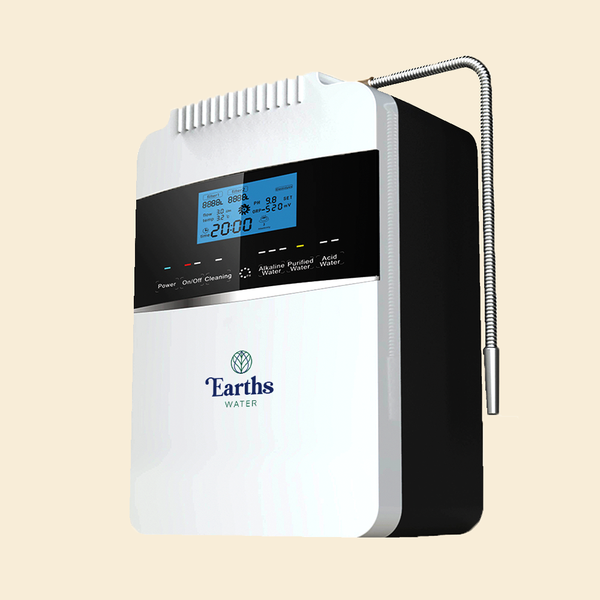
When you think about hormones, you probably picture stress levels before a big meeting, mood swings when you’re hungry, or the delicate balance that keeps your sleep, energy, and general wellbeing on track. Even what we drink every day feels so ordinary that we barely even think about it, but the quality of your water could be having more of a say in your hormones than you’d expect.
Not exactly the kind of topic that makes for light dinner chat—“pass the salt, did you know about endocrine disruptors?”—but it’s one worth paying attention to. These sneaky chemicals are increasingly linked to hormone imbalances, and water quality plays a big part in how much we’re exposed to them.
So, what’s really going on in our water, and what can you do about it?
The Role of Hormones in Everyday Life
Hormones are like your body’s post-it notes—tiny chemical messengers that keep everything organised. They influence your sleep, appetite, fertility, growth, mood, and even how you respond to stress. When they’re in balance, you don’t think twice. When they’re disrupted, you definitely notice.
And here’s what many of us don’t realise: endocrine disruptors, chemicals that mimic, block, or interfere with hormones, can sneak into our bodies through what we drink and even what we absorb through our skin.
Endocrine Disruptors in Water

Endocrine disruptors (EDCs) are substances that interfere with hormone systems, even at low levels. Unfortunately, some of them are found in drinking water supplies across Australia and globally. Here are a few of the common culprits:
Chlorine By-products
Chlorine is widely used to disinfect tap water, which keeps harmful microbes at bay. But when chlorine reacts with organic matter (like leaves or sediment), it can create by-products called trihalomethanes (THMs). According to research, long-term exposure to THMs may pose health risks, including increased risk of cancer, as well as reproductive problems and developmental issues in fetuses and infants.
PFAS (Forever Chemicals)
Per- and polyfluoroalkyl substances (PFAS) are nicknamed “forever chemicals” because they don’t break down easily in the environment—or in our bodies. A report by the Endocrine Society highlights growing concerns about PFAS affecting pregnancy outcomes, puberty timing, and other reproductive health aspects.
Microplastics
Microplastics are tiny plastic particles less than 5mm in size. They’re everywhere—oceans, soil, and yes, even drinking water. Research suggests they can leach chemicals that affect thyroid hormone production and even metabolism.
How Endocrine Disruptors Affect Hormone Balance

The tricky thing about endocrine disruptors is that they don’t need to be present in large amounts to cause issues. Even small exposures, repeated over time, can interfere with the body’s delicate systems. Potential effects include:
Reproductive Health Concerns
Hormones are central to fertility and reproductive health. Disruptors can mimic or block natural hormones like oestrogen and testosterone, potentially contributing to fertility challenges, irregular cycles, or hormone-related disorders. Some studies have linked certain chemicals, such as BPA and phthalates, to reproductive health issues in both men and women.
Metabolic Changes
Hormones like insulin, thyroid hormones, and cortisol regulate metabolism, weight, and energy. Endocrine disruptors can muddle with how these hormones signal, making it harder to regulate blood sugar and store energy properly. Over time, this may contribute to weight gain, increased risk of type 2 diabetes, and ongoing fatigue.
Stress and Sleep Disruption
Your body relies on hormones like melatonin and cortisol to regulate sleep–wake cycles and manage stress responses. When disruptors interfere, you might find yourself lying awake at 2 am, then struggling to get through the day without another coffee. Even mild disturbances in sleep and stress hormones can snowball, affecting productivity, mood, and overall wellbeing.

Growth and Development Risks
Children and teenagers are especially vulnerable because their bodies are still developing. Exposure to endocrine disruptors in water during critical growth stages can have long-term consequences, from delayed development to changes in brain and immune function. Because their systems are more sensitive, the same exposure that might have little effect on an adult could be significant for a child.
Why Filtered Drinking Water Supports Hormone Health
Here’s the good news: while we can’t control every single source of endocrine disruptors, we can tackle one major pathway—our water.
A high-quality water filter helps remove or reduce nasties like chlorine by-products, PFAS, microplastics, and even heavy metals. That means fewer hormone-disrupting chemicals sneaking into your morning coffee, your kids’ drink bottles, or your evening shower.
Earths Water Solutions for Hormone Protection
The thought of endocrine disruptors in your water might sound daunting, but protecting your family doesn’t have to be complicated. Earths Water offers a range of filters designed to suit different lifestyles and households.

9L Glass Benchtop Water Filter
A family favourite for safe, clean drinking water straight from the counter. Made from borosilicate glass with a natural bamboo base, it’s as stylish as it is functional—and a clear step away from plastic-heavy alternatives.
3.5L Glass Carafe Water Filter
This carafe is ideal for smaller households or anyone who loves an elegant touch on the dining table. It filters water as you pour, removing up to 98% of contaminants while looking every bit as premium as your favourite glassware.
2.4L Water Filter Jug
Compact and fridge-friendly, this jug makes it easy to stay hydrated. You’ll enjoy filtered drinking water and hormones stay balanced throughout the day. Just fill, filter, and enjoy.
Premium Shower Filter
It’s easy to forget that we absorb water through our skin, too. Our premium shower filter reduces chlorine and other chemicals, protecting your hair, skin, and overall wellbeing while cutting down exposure to hormone disruptors.
Extra Tips Beyond Filtration
Filtration is key, but it’s not the only step you can take. A few more tips for everyday life:
-
Check your local water reports - It helps to know what’s in your water.
-
Ditch single-use plastic bottles – Switch to reusable bottles to cut down on microplastic exposure.
-
Cook fresh when you can – Processed foods often come with added chemicals, some of which act as disruptors.
-
Air out the house during cleaning – Some household cleaning products release chemicals that mimic hormones, so good ventilation helps.
Small actions add up, and being conscious of what goes into (and onto) your body makes a real difference.
Clean Water, Balanced Hormones
Hormones are too important to leave at the mercy of hidden disruptors. While we can’t eliminate every source of exposure, tackling the water you drink and bathe in is a simple, powerful place to start.

With high-quality filters like the one from Earths Water’s product range, you’re not just improving taste or cutting out chlorine smell—you’re reducing your family’s exposure to chemicals that could quietly sabotage their wellbeing.
At Earths Water, we believe clean water should be both safe and sustainable. And when it comes to water quality and hormone balance, every drop truly counts.









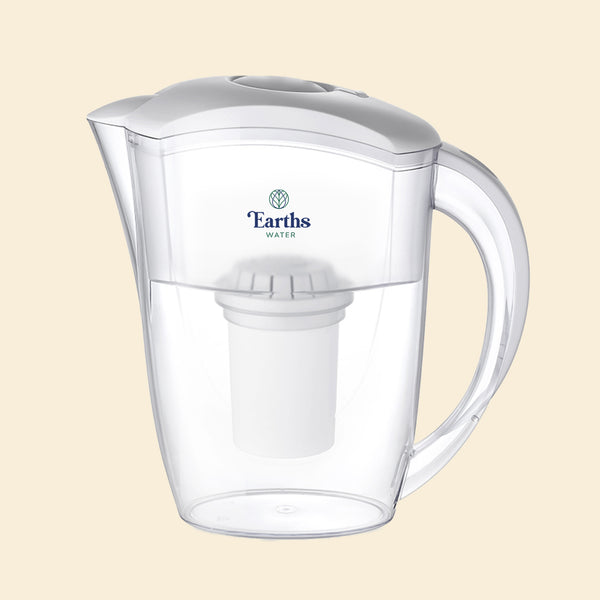
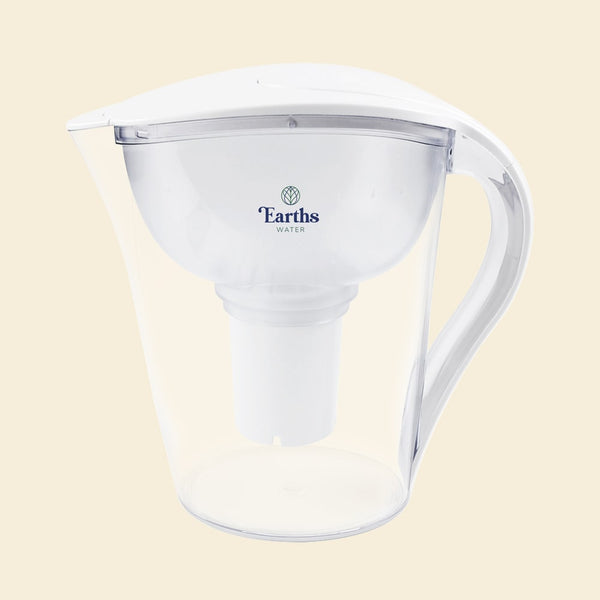
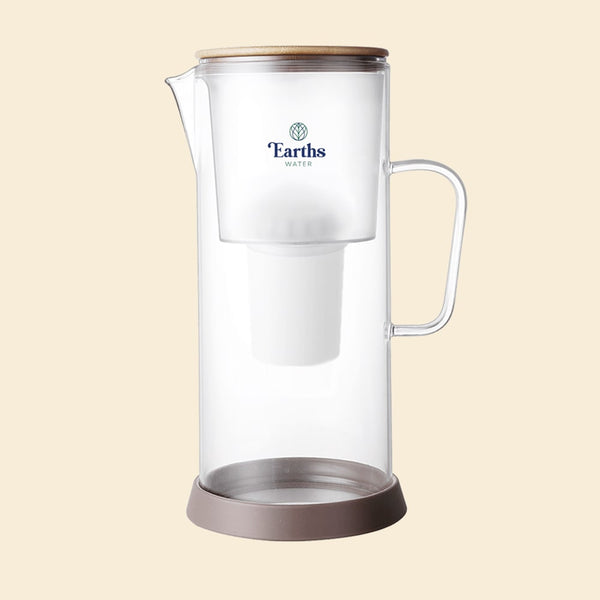
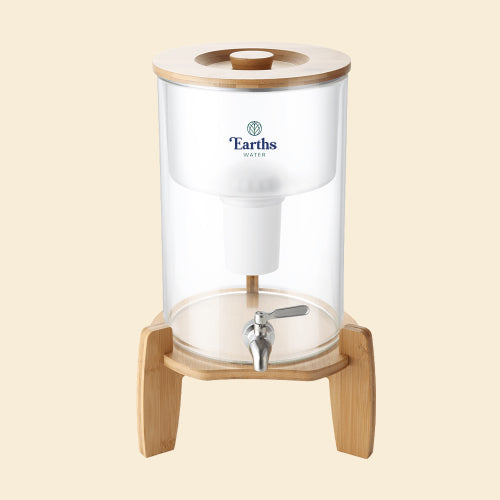
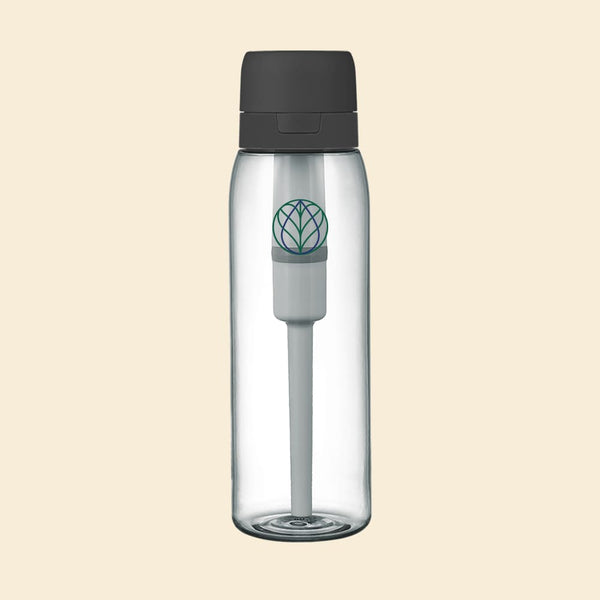
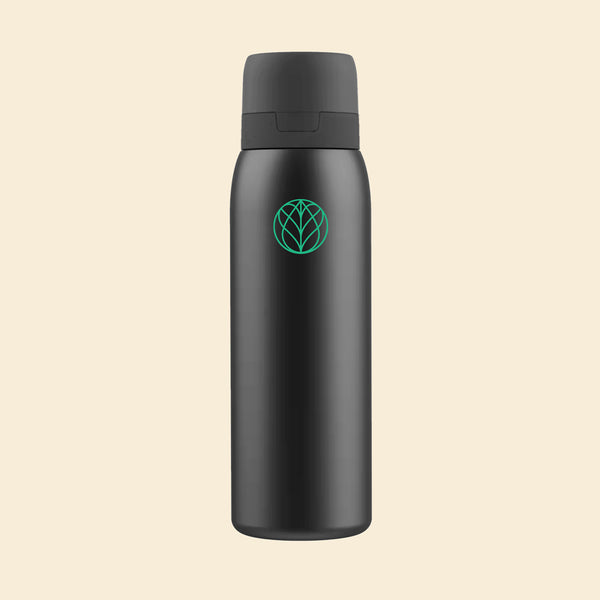
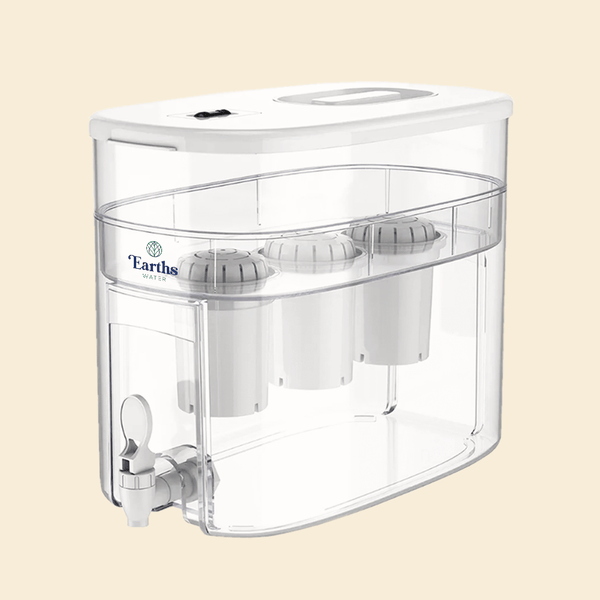
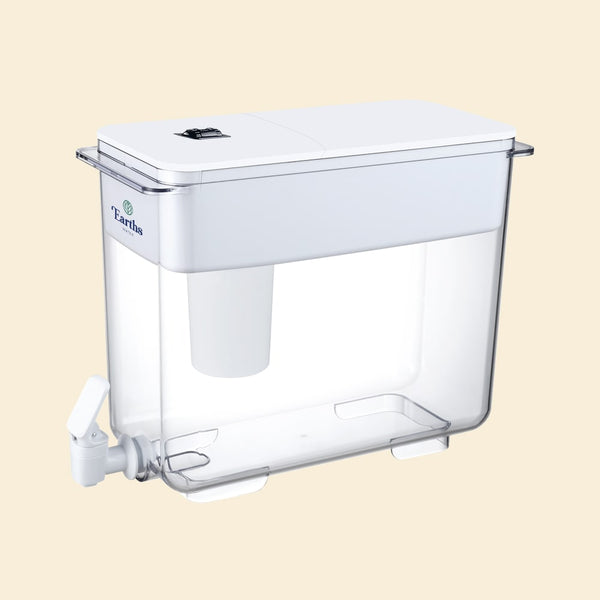
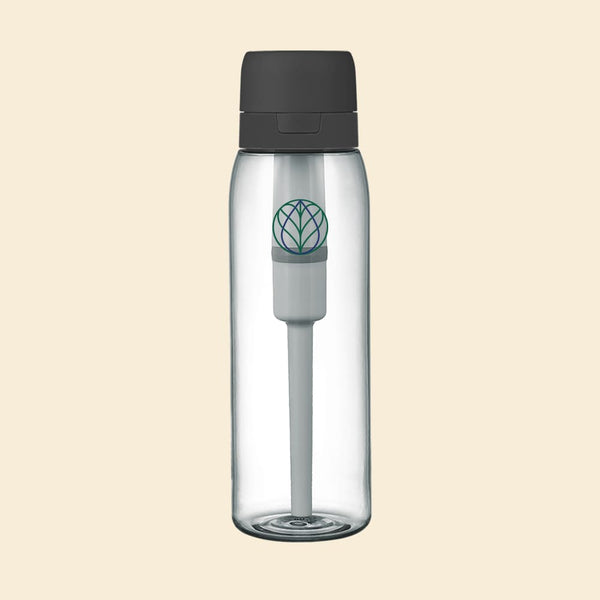
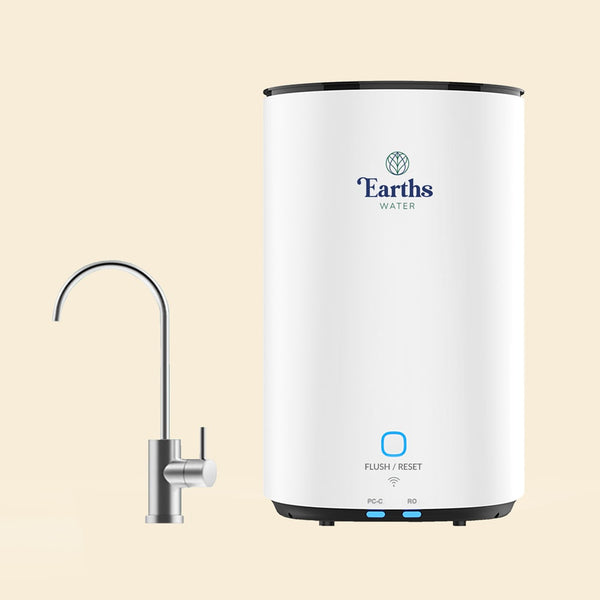
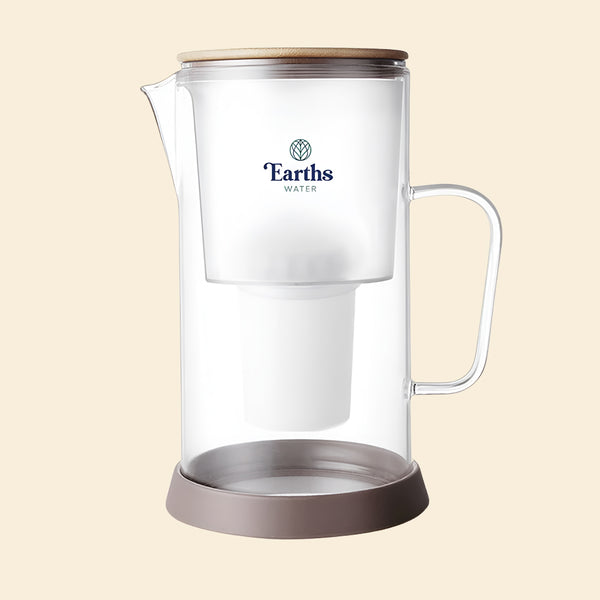
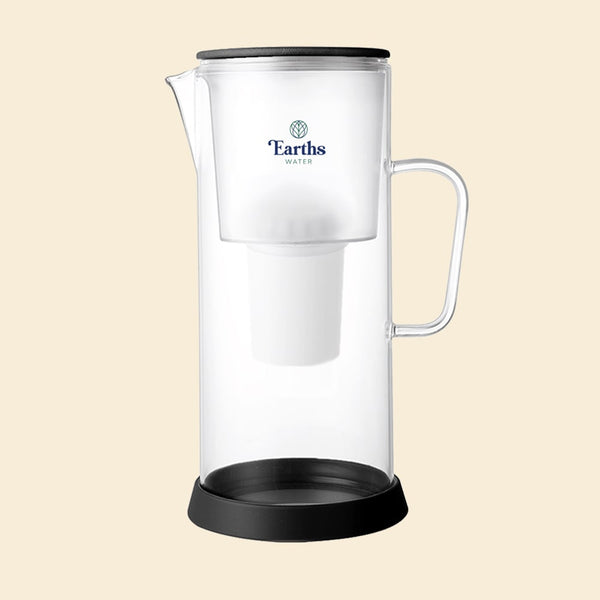
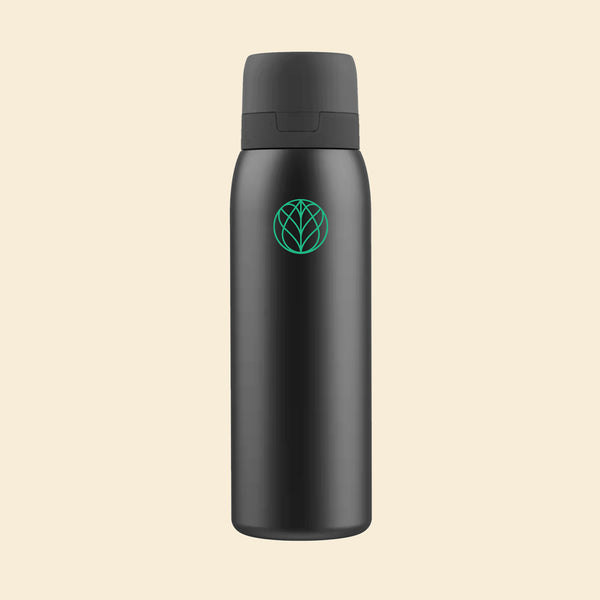
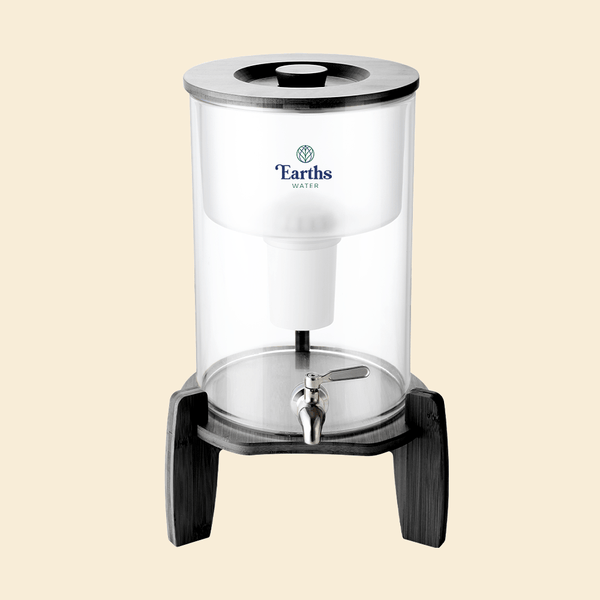
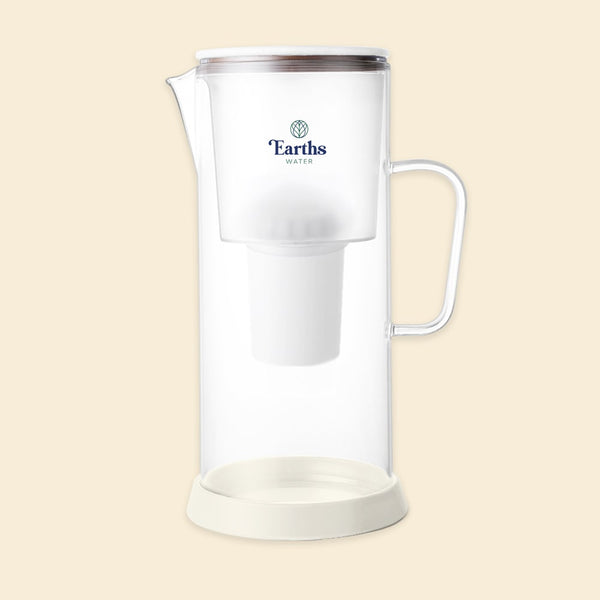
![9L Glass Benchtop Alkaline Water Filter - Eco Acacia [LIMITED EDITION]](http://earthswater.com/cdn/shop/files/ACACIA-BENCHTOP-FRONT-BEIGE_600x600.png?v=1743392740)
